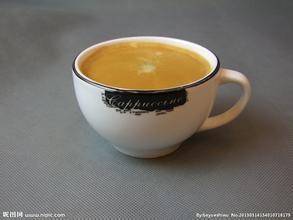Introduction to the characteristics of the manor producing area with rich taste of Guatemalan boutique coffee beans
The current constitution of Guatemala was adopted by the National Assembly in May 1985, entered into force on 14 January 1986, and adopted a constitutional amendment on 30 January 1994. The Constitution stipulates that the president and vice president shall be directly elected for a term of four years and shall not be re-elected; the president shall be the head of state, head of government and commander-in-chief of the armed forces; and soldiers must retire for five years before they can run for president. [8]
Parliament
The National Assembly of Guatemala is unicameral and exercises legislative power. Its members serve for a term of four years and are eligible for re-election. There will be a Speaker and three Deputy speakers for a term of one year. The current parliament was established in January 2012, with a total of 158 seats, with the following seats held by each party: 57 seats for the Patriotic Party, 48 seats for the National Union of Hope and the National Grand Alliance, 14 seats for the National Union for change and the Liberal Party for Democratic Reform, and 27 seats for other political parties and independents. The current speaker is Pedro Muadi of the Patriotic Party, who took office on January 14, 2013 for an one-year term. [14]
The government
The current government of Guatemala was formed in January 2012. The main members are: vice President Rosanna Baldetti, Foreign Minister Harold Cavalieros, Minister of the Interior Maurizio Lopez Bonillia, Minister of Defense Ulisses Noe Soedo Hilone, Minister of Finance Pavel Centrino, Minister of Transport and Infrastructure Guillermo Castillo, Minister of Education Cynthia del Aguila, Agriculture, The Minister of Animal Husbandry and Food Mario Aldana, the Minister of economy and Trade Sergio de la Torre Jimeno, the Minister of Public Health and Social Welfare Ludwig Ovalle, the Minister of Labour and Social Security Carlos Contreras, the Minister of Energy and Mining Eric Estuardo Achira de Essa, the Minister of Culture and Sports Jeronimo Lanserio, Environment and Natural Resources Minister Luis Armando Zulita Tablada. [1]
Judicature
Guatemala consists of the Supreme Court, the Constitutional Court, the Procurator-General's Office, the National Public Prosecution Office and the Ministry of Internal Affairs. There shall be the Supreme Court, the Court of Appeal and the Primary Court. The Supreme Court has 13 justices for a term of five years, which shall be elected by Parliament and may be re-elected; the President of the Supreme Court shall also serve as Chairman of the National Judicial Council, elected by a majority of 2 judges by 3 votes for a term of one year and shall not be re-elected. The current President of the Supreme Court, Gabriel Antonio Medrano Valenzuela, was elected in October 2012. [15]
Political party
The Patriotic Party: the ruling party. Retired General Otto Peres founded the party on December 20, 2001 and served as the party's de facto leader. Originally a member of the ruling coalition of the Berhe government, he withdrew in June 2004 due to political differences. General Secretary Rosanna Baldetti. [16]
[Guatemalan Coffee] how to taste a single coffee? The answer given:
With the continuous development and evolution of raw bean processing technology, the flavor and performance of the so-called "single coffee" from a single area (such as Yega, Blue Mountain, Rosa, etc.) are becoming more and more varied, so that the traditional impression is often "naked". It is difficult to describe the cup you drink completely and accurately.
All kinds of coffee books can only popularize the general knowledge of geography, so that the broad masses of readers know which place of origin is on earth, which country belongs to, and so on. As for the beautiful scenery described in the book, leaning on mountains and water can also bring some beautiful reverie. As far as the flavor and taste of coffee is concerned, take a look. Not to mention the cup that the author experienced, you did not drink it; as far as the senses themselves are concerned, it is also a very subjective impression. It seems to say that "spicy" people from Hunan, Sichuan and Fujian eat together, even if they eat the same dish, their feelings are different, and their descriptions are naturally different.
From the tree to the cup, every link has an irreversible impact on the final performance. The way the raw beans are treated (the flavor of the sun is quite different from that of the water wash); the characteristics the baker wants to show (whether to make espresso or brewing coffee); the producer's understanding of the extraction (1:15 or 1:16). The change of any link is a brand-new experience for the taster.

Important Notice :
前街咖啡 FrontStreet Coffee has moved to new addredd:
FrontStreet Coffee Address: 315,Donghua East Road,GuangZhou
Tel:020 38364473
- Prev

Introduction to the characteristics of Antigua Coffee Flavor Manor in Guatemala with good balance
Guatemala is located in the tropics, the northern and eastern coastal plains have a tropical rain forest climate, the southern mountains have a subtropical climate, the year is divided into two dry and wet seasons, with the wet season from May to October and the dry season from November to April of the following year. The narrow and fertile flatlands on the Pacific side of Guatemala have a tropical climate. The central plateau is also the cultural center of Guatemala, where the year-round temperature ranges from 1300 to 1800 meters.
- Next

Introduction to the characteristics of Tanzania boutique coffee bean Kilimanjaro coffee flavor and taste manor
In October 2000, the Revolutionary Party won the second multi-party election by an absolute majority. However, the opposition Civic United Front refused to recognize the results of the Sang Island election and called on its supporters to hold protests, sparking large-scale bloodshed. The Mkapa government has taken resolute measures to maintain social order, while having dialogue with the opposition parties to promote the signing of a reconciliation agreement between the ruling and opposition parties, thus maintaining social stability.
Related
- Detailed explanation of Jadeite planting Land in Panamanian Jadeite Manor introduction to the grading system of Jadeite competitive bidding, Red bid, Green bid and Rose Summer
- Story of Coffee planting in Brenka region of Costa Rica Stonehenge Manor anaerobic heavy honey treatment of flavor mouth
- What's on the barrel of Blue Mountain Coffee beans?
- Can American coffee also pull flowers? How to use hot American style to pull out a good-looking pattern?
- Can you make a cold extract with coffee beans? What is the right proportion for cold-extracted coffee formula?
- Indonesian PWN Gold Mandrine Coffee Origin Features Flavor How to Chong? Mandolin coffee is American.
- A brief introduction to the flavor characteristics of Brazilian yellow bourbon coffee beans
- What is the effect of different water quality on the flavor of cold-extracted coffee? What kind of water is best for brewing coffee?
- Why do you think of Rose Summer whenever you mention Panamanian coffee?
- Introduction to the characteristics of authentic blue mountain coffee bean producing areas? What is the CIB Coffee Authority in Jamaica?

